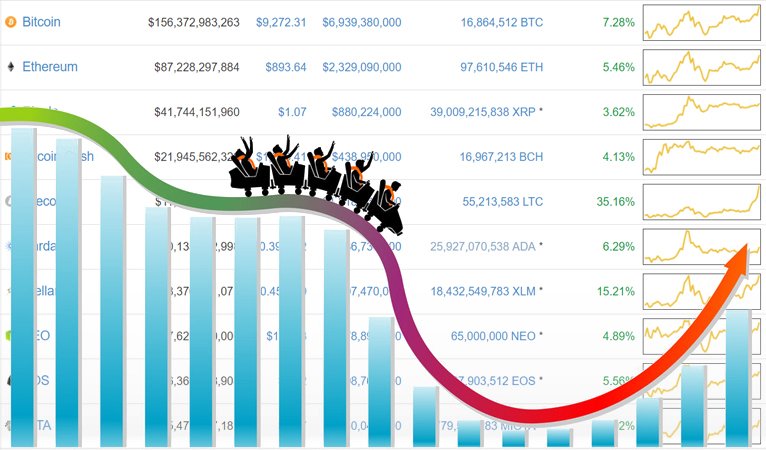
The cryptocurrency market has been enduring a lot of price volatility over the past few months. Many not in the crypto space are taking advantage of this transient phrase to preach from their pulpits that cryptocurrency is a “bubble” or a “ponzi” scheme. However, others recognize that the complete story is much more complex. Sopnendu Mohanty, chief financial technology officer of the Monetary Authority of Singapore (Singapore’s Central Bank) said in an interview with CNBC “the speculators and the people who are making money out of this speculation of the cryptocurrency (market) are perhaps negatively impacting the whole experimentation of cryptocurrency.
Despite the measures to ensure stability in the cryptocurrency market, it's still a struggle to stop or at least reduce cryptocurrencies' volatility. There are still so many factors keeping them volatile. These include: the currencies' lack of intrinsic value, the lack of institutional capital, the implementation of regulations and thin-order books, among other factors.
When Will Volatility Decrease
Over time, we can expect more regulation, a greater diversity of investors, and a more mature outlook on the crypto market. We can also expect higher utility value as merchants find more accessible ways of accepting cryptocurrency, and the technology behind transactions also improves. While volatility may decrease, we can also expect a gradual but steady surge in the value of the cryptocurrency market as a whole. Just as the stock market has given way to long-term holders, so too will the cryptocurrency markets. At the very least, it appears to be something that is going to be here for the long run.
How To Manage The Volatility
Managing downside risk is an important part of any successful trading strategy, more so in the extreme volatility of cryptocurrency. Many experts prefer to define a hard stop-loss level prior to each trade, however a "soft" soft-loss/exit parameter can be sufficient depending on the frequency of the trading strategy.
Very few crypto exchanges cater to higher frequency trading strategies more difficult if not impossible in many cases. High frequency market making or scalping strategies are less concerned with hard stop-losses, due to the extremely short exposure to directional risk.
As hold duration for each trade moves into the span of minutes, absolute risk is still relatively limited in most cases. However, as in any market, there are occasional spikes in volatility-but these can be amplified too.
In short, cryptocurrencies won't stop being volatile. And that's something any investor should plan for.
Also I would love to know : How are you dealing with this volatility? Do you have any suggestion? Let I know your thoughts and findings in the comments section below!
Like this post? Don't forget to upvote it!
Hi! I am a robot. I just upvoted you! I found similar content that readers might be interested in:
https://cointelegraph.com/news/why-is-the-cryptocurrency-market-so-volatile-expert-take